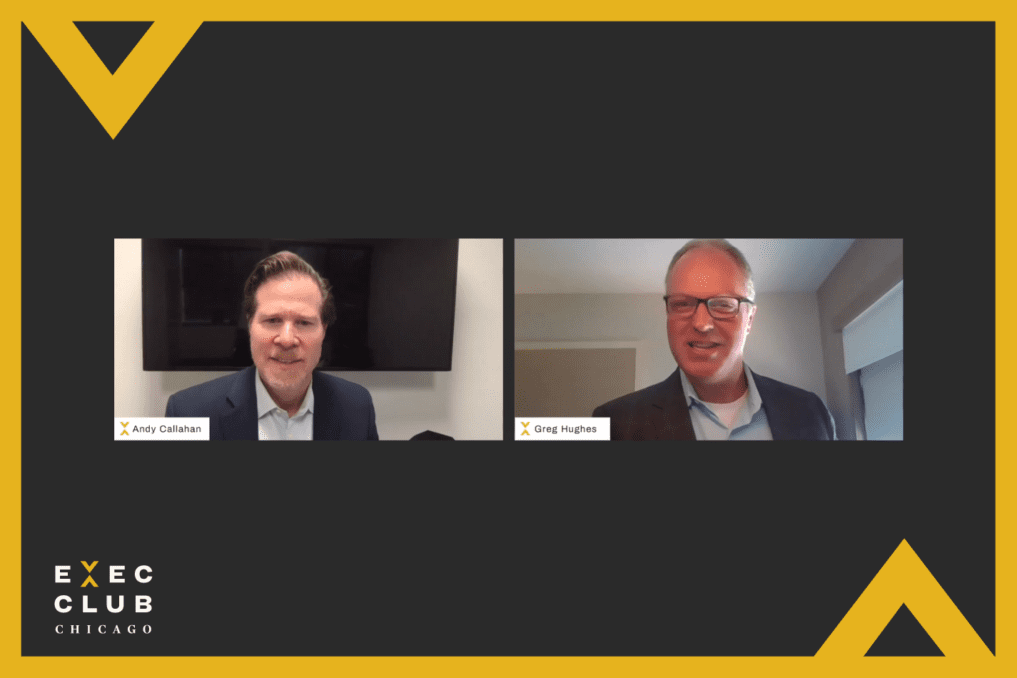
A Conversation with Greg Hughes, President, North America, Beam Suntory
March 10, 2022

Speaker
Greg Hughes
President, North America, Beam Suntory

Moderator
Andy Callahan
Chief Executive Officer, Hostess Brands

The pair, friends and former colleagues, discussed leadership strategies with the focus on Hughes’ experience using the Japanese management philosophy known as “Gemba.”

He said often it’s a reference to the factory floor, and the idea that managers and employees should walk the assembly line together to examine problems and improve efficiency. The process, though, can apply to leadership, consumer understanding and other elements of business. Hughes said the biggest takeaway from Gemba is that it’s a tool for honing the skill of empathy.
“(Gemba) literally puts management in the place and in the perspective of the line operators and empowers the line operators to make improvements that make the manufacturing process work more efficiently.”
“The principle of being in ‘the real place’ or being in ‘the place of action’ is really about empathy. … As you manage teams it’s really about making sure that you create a work environment or culture or a leadership team where you’re creating this culture of empathy. We’re encouraging people to see issues and opportunities and problems in the workplace through the perspective of others. You’re looking at problems together, as opposed to an us vs. them mentality.”
—Greg Hughes, President, North America, Beam Suntory
“It was my first experience of finding no matter what position you have, there are bonds, there’s always something you can grab onto. You can always be empathetic because if the fundamentals of a person are not taken care of, it’s hard to ask them to do things that are extraordinary.” -AC
“(agreeing) There’s something about being in a common experience and deliberately framing situations to make sure you’re having a shared experience. …It really is about making sure you’re purposeful in how you engage.” -GH
“We have to figure out how to connect our brands with culture, and we need to connect with the culture of our employee base. You can attract great diverse talent, but when they go out with their friends and don’t see your brand showing up in a way that feels like they’re connected to culture, then it’s hard to keep them engaged, and vice versa.”
“You can’t really connect with culture unless you’re creating an environment in your workplace where people are open to different perspectives and empathy and understanding where consumer trends are.”
—Greg Hughes, President, North America, Beam Suntory
“You have to engage to understand it. So that gives me a forum to say, ‘Hey, this is about empathy, it’s about inclusion. It’s about being purposeful to make sure that we’re creating the right work culture.”
—Greg Hughes, President, North America, Beam Suntory

Browse All Our Upcoming Events And Keep Learning, Growing, And Connecting